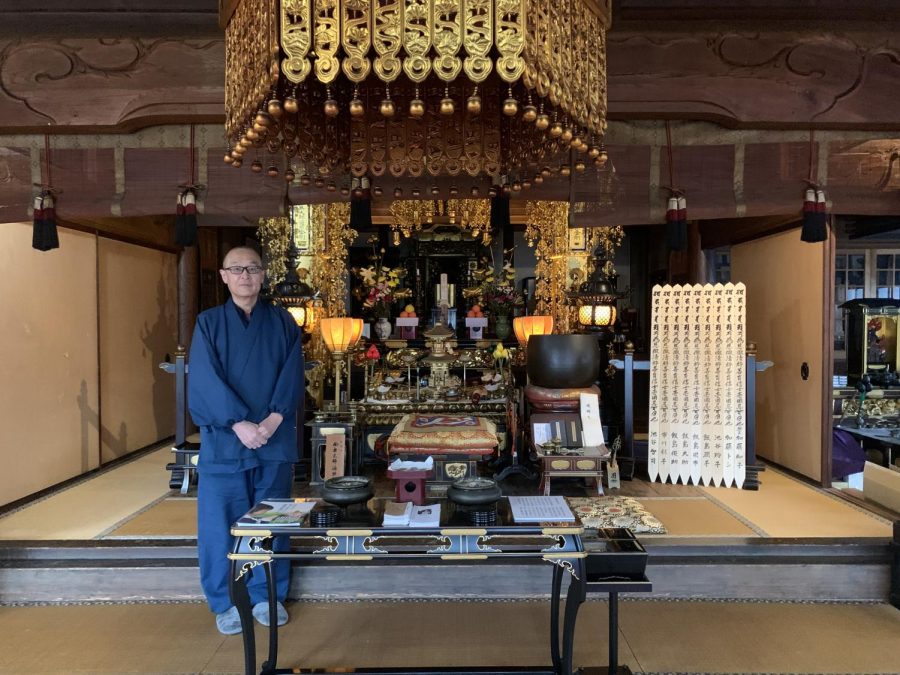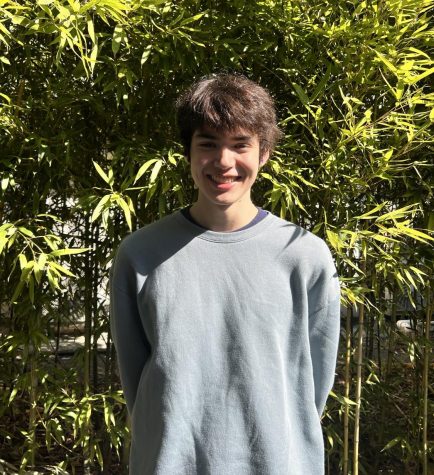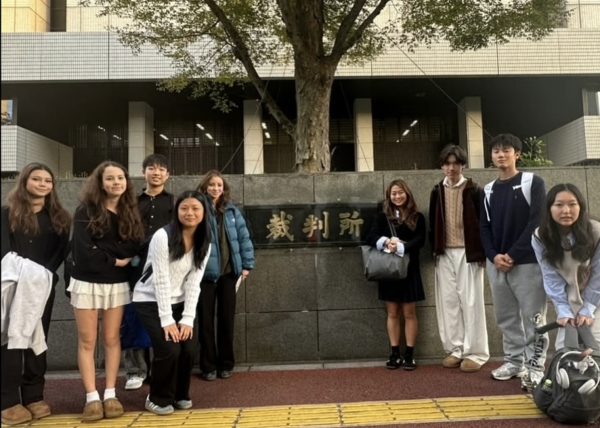Exploring Japan: Meeting a Buddhist Monk
March 16, 2022
“If I cannot become a great monk, then take my life away,” the Buddha declared as he dropped from the edge of a great cliff. In just moments, a large bird swung in to save the falling man from death itself.
You, too, can become a Buddha, Mr. Ryoukou, the senior monk abbot of the Ryūsenji temple, explained to me. “Anyone can become a Buddha.” He gestured to his stomach. “There is a seed of talent within us.” In Buddhist teaching, watering this seed allows it to grow and flourish, bringing us a step closer to “Buddha.”
As for the story, I pointed out, “It’s hardly believable.” He agreed: perhaps there are ideas that can only be illustrated through tales of the impossible — people so grand and impressive, they could only be described through imaginary stories.
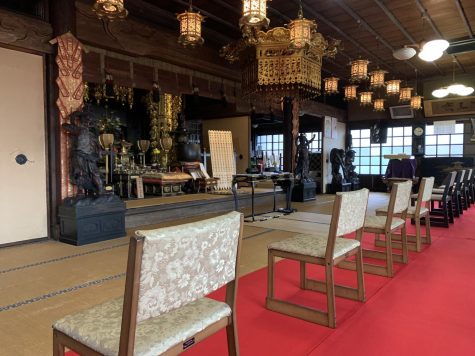
I then asked him the zinger question: What does it mean to be a Buddha? He gave a slight sigh and reminded me that this was only his interpretation: a Buddha is someone who can bring the people around them happiness. When you make others happy, you also make yourself happy. Buddhism, he added, calls this “Dependent Co-Arising.” He proposed that we are fundamentally dependent on each other; all of us are intrinsically and inherently tied to the fates of one another. Most of us eat meat to survive, so our lives are intrinsically tied to the lives of animals.
I pointed to a chawan tea bowl that was put on the table and asked if Dependent Co-Arising also applied to man-made objects. He quickly responded, “There are those who dig the dirt, those who mold, and those who fire. Only then does this bowl exist.”
Even the spread of COVID-19, he said, is rooted in this idea of interrelatedness. Globalization, for one, requires outsourcing — accumulating high profits in developed nations through low wages in developing nations. If the world had not been so interdependent — or had human greed been suppressed — perhaps the spread of COVID could have been mitigated as well.

Mr. Ryoukou told me another story. A training monk encounters a tiger in the woods. Instead of running away, he gives his life to sate the tiger’s hunger. Suddenly, the tiger transforms into a divine Buddha who reveals that they were testing his will all along.
Buddhism promotes “offerings”: giving your most precious things to others. He contrasted this philosophy with the practices of the fossil fuel industry, explaining, “We are taking from the Earth, ruining it.” The goal is not to erase all desires — that would leave us dead. It’s about controlling a reasonable amount of desire to sustain oneself. This minimalism, he suggested, is the most human and eco-friendly approach.
As it turns out, Buddhism’s deep connection with nature has had a direct influence on Japanese culture as a whole. “Buddhism doesn’t view nature in an antagonistic fashion.” Some of the most famous haikus, for example, focus on human coexistence with nature. It’s not a coincidence that the first haiku writers were also Buddhist monks. Traditional Japanese paper walls, shoji, embrace the extremes of natural climates: summers were sweaty and winters were freezing. In the past, families were separated not by concrete, but by thin shoji walls. Voices could be heard throughout — the concept of modern privacy was yet unfamiliar. In both Buddhism and Japanese culture, there is a prevailing motif of interpersonal connection.
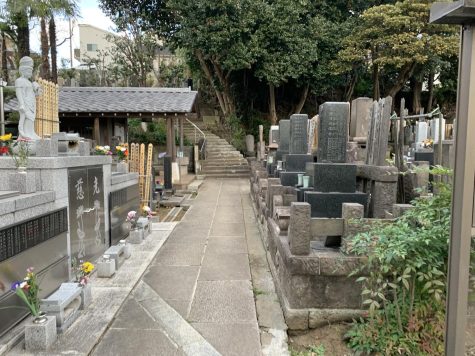
In the context of Japanese culture, Mr. Ryoukou claims that Buddhism is not a religion, but the backbone of societal philosophy. Despite Buddhism’s overwhelming popularity in Japan, many Japanese people are surprised to hear that they technically qualify as “Buddhist”; in comparison to other systems of belief, Buddhism is less demanding. Apart from periodically visiting temples, the average Japanese takes part in few Buddhist rituals. The result is the spread of Buddhist beliefs over practices.
He explained to me that beliefs change over time; Buddhism evolves with its followers. During the war-ridden Kamakura period, Buddhism demanded simple adherence. In the Heian period, economic prosperity and foreign influences turned Buddhism into a complex and well-studied form of spiritual pursuit. As Japan loses economic footing with COVID continuing to distress the nation, perhaps what the people now need most is philosophical simplicity.

